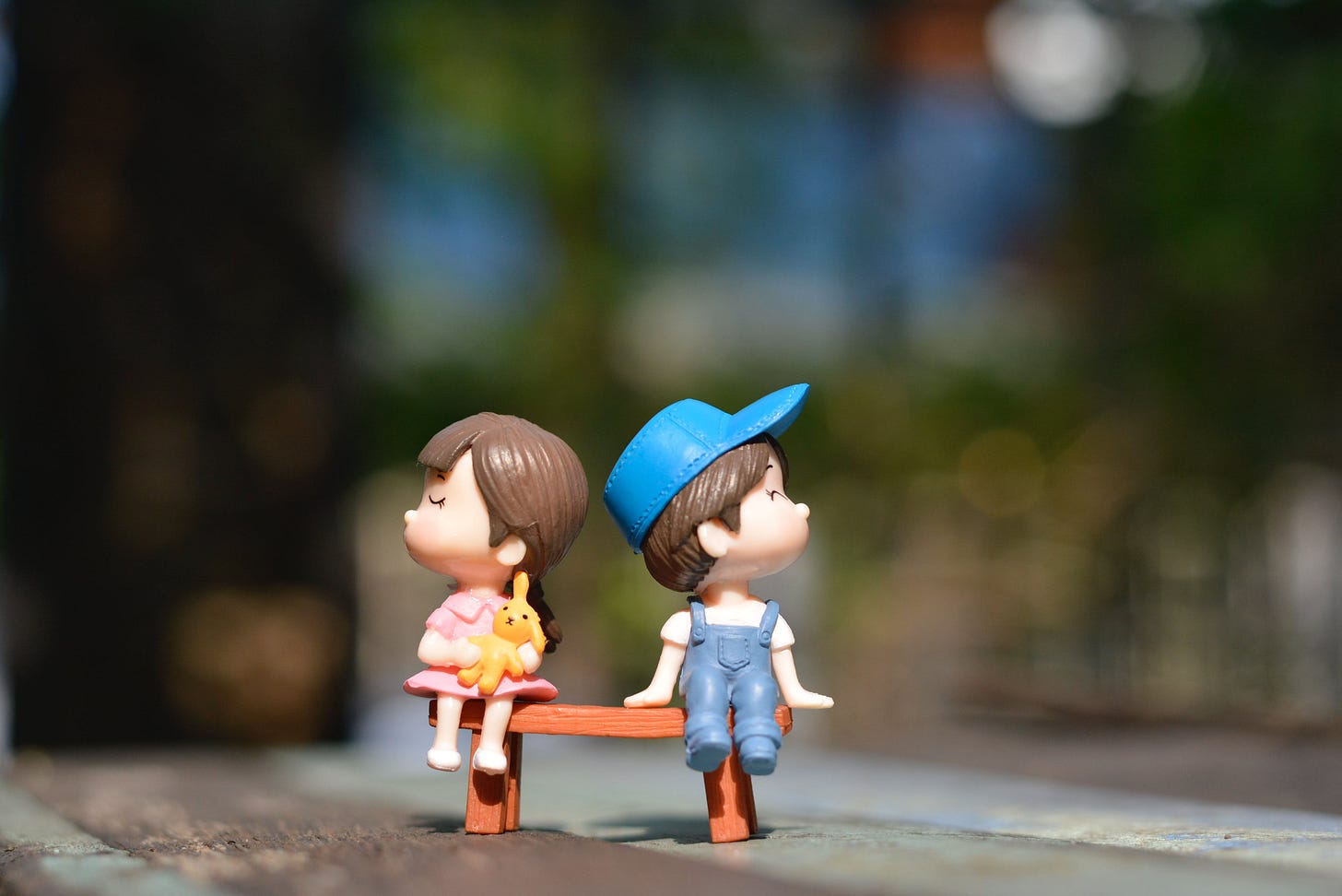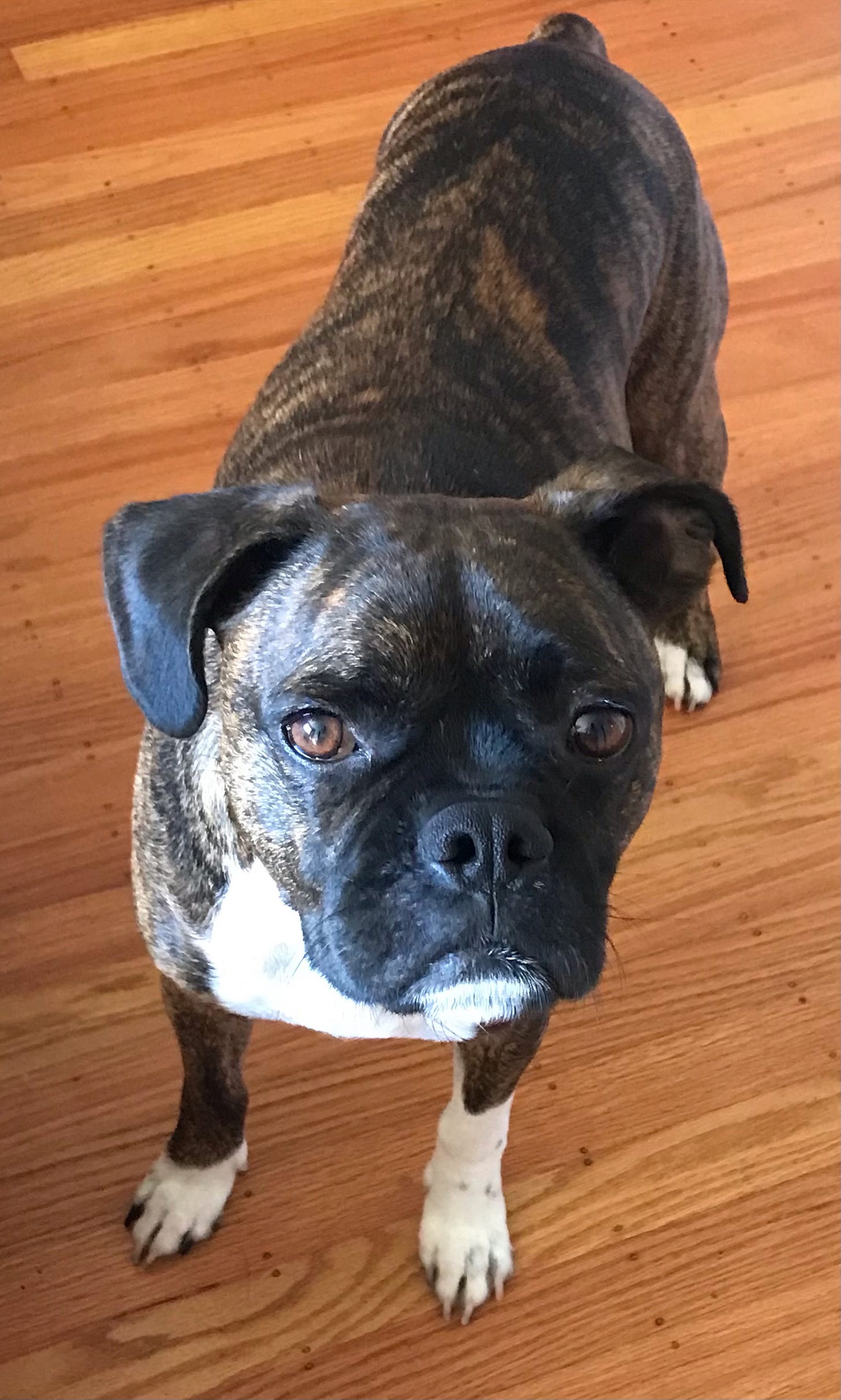Intimate Relationships Include Love (and Your Partner's Trauma)
Unfortunately, we don't get one without the other
Dear friends,
Welcome to another edition of Beyond Self Improvement! Last Wednesday, I published Shattering Illusions: Debunking 6 Pervasive Myths of Modern Society (From Fairness to Romantic Love).
Today’s essay is about cultivating mature, lasting love by healing our childhood trauma. If you’re new here, please subscribe to get my next essay in your inbox.
In the past, when I met a potential partner I fancied, I tended to see everything I liked about her. Perfect in every way, and soon enough, I couldn’t imagine being with anyone else. Bliss at last, the love of my life. Finally, I could stop looking.
But inevitably, I would notice things I didn’t like—the stuff of late-night comedian fodder like the unmade bed, the hair on the soap, or the lack of help with directions while driving. However, such petty grievances paled compared to how much I enjoyed their company, so I waved them off. Anyway, who was I to judge?
But the annoyances could be kept at bay only for so long. Eventually, I would broach the subject of our differences. Of course, they would become defensive. “You’re criticizing me? What about you? You can’t even remember something I just told you yesterday. And your place? It smells funky.”
I thought she adored me. Maybe this was a mistake. Perhaps she’s not the one for me after all. But I like her. And the last thing I want is to be single and start over again.
So, what would I do in these situations? I would have done something like plan a weekend getaway where we could have fun and forget all about the difficult conversation. Sound familiar?
𑁍
I met my ex-wife in a yoga class in Boulder, Colorado. I know it’s a cliche, but this was 2000 before yoga was a thing. She was tall, elegant, and far more flexible than me. Above all, she had the most beautiful collarbones. After class one evening, I invited her to tea.
“Why do yoga guys always ask women for tea?” she wondered aloud. (Coffee was too common and uncultured, so I chose tea.)
“What do you mean,” I said.
“Another guy from class asked me to tea too,” she replied.
What, he’s working the same new-age angle? Damn, I should have said coffee.
“Which guy?” I asked.
“That guy in the brown tights over there,” she said with slight contempt.
Phew, maybe he’s not competition after all.
After class, we drank tea and talked. I liked her—she was more innocent and less smooth than the other women. The next day, she called to invite me to dinner at a Middle Eastern restaurant for her birthday. I had to walk through the filthy kitchen to get to the bathroom. That night, I became violently ill, presumably from food poisoning.
The following day, she visited her sister and parents in Denver and joked that I pocketed food in my cheeks like a chipmunk while eating. Hearing this hurt, but I didn’t say anything because I was rehearsed pretending I was okay when I wasn’t.
𑁍
Why is it that relationships start with promise but eventually run into conflict? The simple truth is that each of us carries trauma, conditioning, or domestication, as Don Miguel Ruiz calls it, from our childhood, which is later reinforced by school, work, and society. Because our conditioning is invisible to us, we’re usually unaware. Yet trauma affects every aspect of our lives, especially intimate relationships—from how we relate to others to how we express ourselves to how we handle money.
After moving in with my ex-wife, I began noticing my reactions were disproportionate to her actions. Over time, I discovered that my reactivity could be traced back to childhood. If she said, “You’re not going to wear that shirt again, are you?” I would become argumentative. After inquiring, I saw that my family was judgmental, so comments about my looks were particularly painful.
Usually, we remain unaware of our wounding until we get triggered in an intimate relationship, warning us that something isn’t right. In time, all of our unresolved childhood hurts will be revealed in a close relationship.
I would also become angry whenever someone kept me waiting. It occurred that my frustration was coming from my mom always being late picking me up. When I was seven, she forgot me altogether after baseball practice. Hours later, a kind woman saw me crying in the dark, found my address in the phone book, and drove me home. Another time, my mom left me waiting for 30 minutes in zero-degree weather, sweaty after an hour of cross-country skiing. I was furious but kept it inside. Experiences like these are a part of my collective wounding. Today, I still become irritated when someone is late, yet much less so than before.
Of course, my ex-wife had her own challenges.
𑁍
So what are we to do? First, we need to become aware that we were wounded in the first place. We must understand that virtually all relationship conflicts can be traced back to childhood. Next, we want to investigate our over-reactions to see what specific events may be causing them.
Once we see our conditioning, we can learn to bring kind attention to where we are still hurting. We can learn to reparent ourselves with patience, compassion, and love, which acts like a soothing balm on our old wounds.
While it may be true that we can transcend our conditioning with enough love and light from our partner, more often than not, our partner’s love is enough to overcome our trauma. True healing requires going deeper, often with the help of a skilled practitioner who can support us in releasing the trauma trapped in our bodies.
𑁍
Over Thanksgiving weekend, my partner, Kie, and I had a misunderstanding. “I can’t compete with your trauma,” I said after we talked. We laughed because we both understood. Of course, her love is no match for mine, either. We must heal our wounds if we are to sustain a healthy, mature relationship over our lifetimes.
When you’re ready, I can help you transform chronic stress and worry into ongoing calm—making you feel in control in 90 days. Schedule a free, 30-minute discovery call today.
Or, if you want to grab coffee or tea, let me know whenever you're in Silicon Valley. ☕️




Fascinating topic! Many authors are now writing about the role of childhood trauma on who we become as adult people. My new understanding is now that “ trauma is not so much “an event that happened to us” but rather ‘what we allowed the experiences to do inside us’) I appreciate you focusing on this today! Thanks & happy holidays!🎄